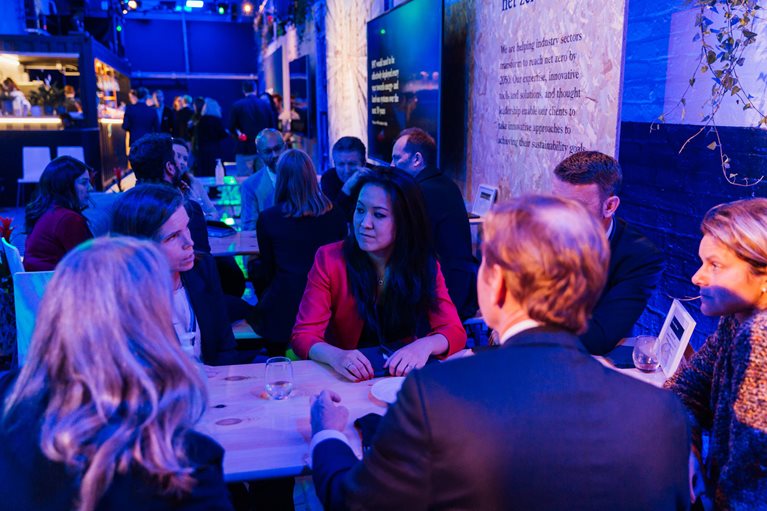What will it take for the world to solve the net-zero equation—to reduce greenhouse-gas emissions, and balance any remaining emissions with removals? Our research suggests that effective climate action will involve technological advances, capital investment, and behavior change. And as four CEOs observed during McKinsey’s second panel at COP26, efforts to scale up climate solutions will also rely on collaboration and understanding: between government and business, within industries, among companies and their customers, and across developed and developing economies. Excerpts from their discussion, edited for clarity, appear below.
Highlights from day two
For a global company like MasterCard, emerging markets serve as a daily, constant reminder that we won’t win unless everybody wins. We’re looking at the challenges in these markets and making sure that we stay close to them to understand what those challenges are. Providing the kind of solutions that help in emerging markets is equally important as trying to grow market share and profitability in some of our most developed markets.
—Michael Miebach, CEO, Mastercard
COP26 is an important event, and it’s an opportunity that we can’t miss to start that collaboration on a greater scale than we’ve had in the past. Oftentimes, the oil and gas industry’s left out of the collaboration. But we want to be a part of the solution. We have technology that’s going to make a difference.
—Vicki Hollub, president and CEO, Occidental

Citizens want to engage. They want to participate. They are feeling the pressure themselves. It’s up to us in the private sector to make sure that we drive innovation, the technology, the transparency in a way that allows everybody to work as an ecosystem. That’s what it’s going to take. It can’t just be one actor or one set of stakeholders trying to move the needle.
—Roberto Marques, CEO, Natura
We have to get to carbon sequestration. It’s the energy companies and industrials who actually create those plants. But can we find catalysts and materials that are 100 times better and more efficient?... We want to work on this, and we are working with partners on trying to find such catalysts and such materials that can do more at the same cost.
—Arvind Krishna, Chairman and CEO, IBM
From our venue at COP26
Watch the recording of today’s session here. To register for our upcoming livestreamed events at COP26, visit this agenda page.
At a glance
The net-zero pathway for the mobility sector offers an example of how profoundly any given industry must change for the world to reach net zero. Widespread adoption of electric cars can only be achieved through a transformation of the industry’s entire supply chain, from suppliers and manufacturers.

In depth
Learn more about the search for net-zero solutions with these McKinsey articles:
Author Talks: Paul Polman on business as a force for good
Buying into a more sustainable value chain
The big choices for oil and gas in navigating the energy transition
How negative emissions can help organizations meet their climate goals